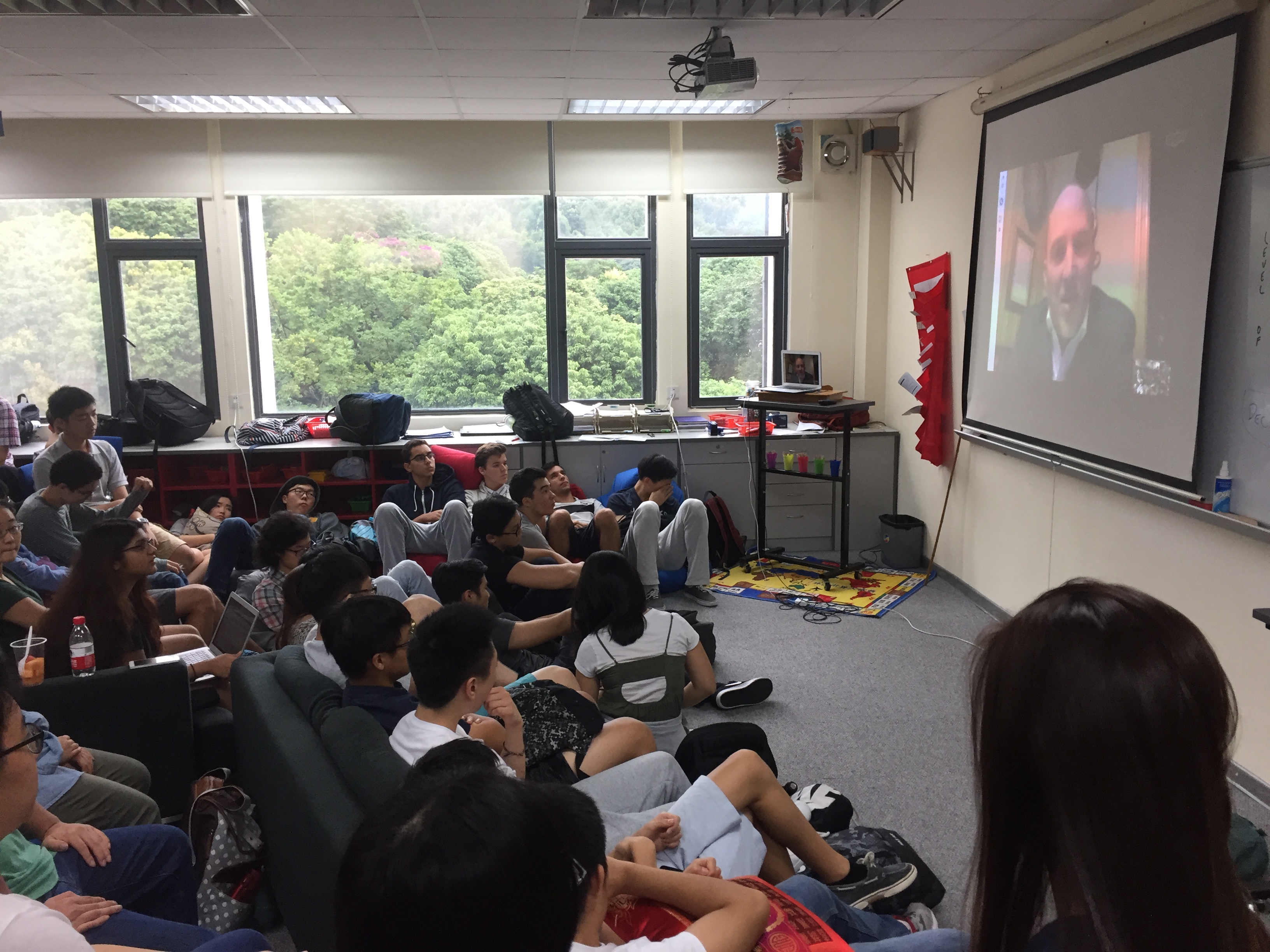
Never have the U.S. elections been so intense and controversial than during the 2016 election cycle. After the IB Economics elections project at AISG, student and teacher involvement in the elections was especially strong. Many members of the school population were invested throughout the elections despite being in faraway China. After Donald Trump’s victory, many students and teachers had questions.
On November 21, the TOK classes enjoyed a treat organized by Mr. Duncan: we held a Skype interview with Darren Morris, the Chief of Staff for Donald Trump in the critical battleground state of Florida, and originally in charge of the state of Tennessee. Darren Morris is President of Morris Global Strategies, a political and public affairs consulting firm based in Nashville Tennessee. After Trump’s victory in Tennessee during the primary campaign in August 2015, Morris became an advisor for the Republican team.
From the beginning of the Skype call the enthusiasm of the students was apparent. Immediately after Mr. Duncan introduced a handful of students, people began asking questions, not hesitating to challenge Mr. Morris. A concerned senior, Ayman Mekkaoui Alaoui, asked about immigration policies, specifically about the difference between the proposed registry system for Muslims and internment camp system used for Japanese Americans in World War II. Morris answered, “There will not be a registry.” This provoked a sigh of relief for many; however, this answer does not instill much faith in Trump’s honesty, as he seems to be backpedaling away from some of his campaign promises now that he has won the election.
The next question targeted the disturbing decisions Mr. Trump has taken regarding his cabinet positions and staff, as one of the primary slogans/promises in his campaign was to “drain the swamp”. I questioned Mr. Morris about Trump’s recent decision to appoint Steve Bannon as his Chief Strategist who will be responsible for development, communication and strategic initiatives, also playing a very important role in the White House. The question referred implicitly to the fact that Mr. Bannon is the Chairman of an alt-right (white supremacist) news website called Breitbart News, among other ethical issues surrounding the two proposed appointments. Many worry that the association between Breitbart and the president elect confirms suspicions that Trump seeks to appeal to the racist sectors of American society. Mr. Morris shrugged off the issue, saying, “I don’t think it is that big of a deal,” as he has personally met Mr. Bannon and considers him a “nice guy.” In regards to the alt-right articles on the news channel, Mr. Morris believed they were “taken out of context” and continued an attempt to distance the responsibility of the editor of Breitbart News (Mr. Bannon) regarding the white supremacist articles as “they were not written by Bannon himself.” Morris seemed at times to contradict himself regarding his personal association with Mr. Bannon, but ultimately believes that he is “a very brilliant guy.”
Later, Morris explained why he is a Trump supporter, and claimed that he knew Trump was going to win from the start. Morris helped us learn about the power of marketing, as well as some reasons behind Trump’s win, and specific policies that make him a better candidate. From questions ranging from NAFTA, the TPP, the military budget and the political turmoil caused by the Trump administration, students vocally raised their concerns. However, when it came to the specifics of the ideology behind Mr. Trump and his policies, Mr. Morris claimed that “it came down to personality more than policy” for the American people. Later, during the reflection of the discussion, various students said they found that ironic and highly concerning as the primary reason behind electing one of the most powerful positions in the world came down to intrinsic attributes instead of a clear knowledge regarding what to do. Furthermore, due to scandals linked to the president-elect, many students did not understand the appeal of his personality.
We ended the session on a positive note with a question by Mrs. Barga, who asked how the Trump admiration would extend “an olive-branch of sorts” to the half of the American population that is unsatisfied with the result of the election. Mr. Morris believed the president-elect is already reaching out to the people, as in his speech he referred to himself as “the president of all people.” Overall, it was a highly interesting session for both parties as the interviewee seemed highly impressed with AISG students, saying that we “would give American college students a run for their money.” We highly appreciate Mr. Morris taking time to answer our questions, and hope to continue a healthy political discussion in the future.